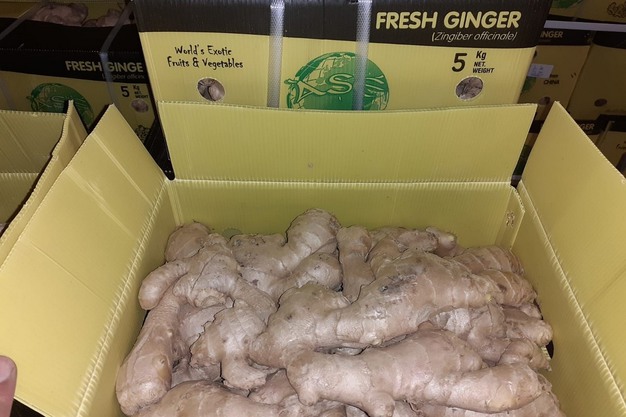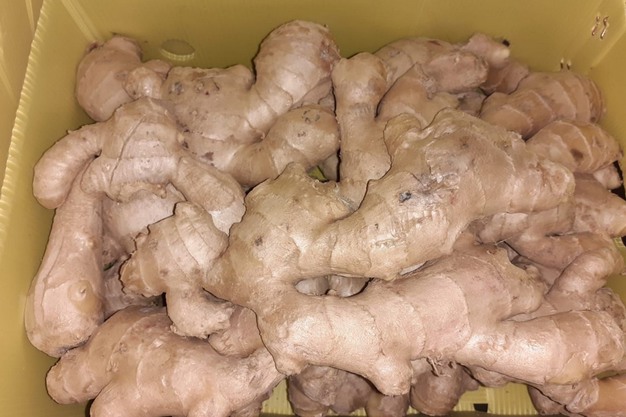In the fruit and vegetable industry, circumstances can change rapidly, and this is exactly what is happening with Chinese ginger and other products coming from Asia to Europe.
"With the ongoing crisis in the Red Sea, where Yemeni Houthis are targeting Western ships, many operators like our Chinese ginger supplier are no longer taking orders. Shipping companies have more than tripled the cost of a container, and the shipments - which would be diverted from the Cape of Good Hope - would take between 50 and 55 days to travel, which raises concerns about the quality conditions of the product upon arrival," says Giorgio Donnarumma, sales manager of Nuovafrutta in Milan, who predicted before Christmas that "there will be a radical change in the ginger market from the end of January, with costs between 30 and 40 percent lower."
 Chinese ginger - Photo by Giorgio Donnarumma
Chinese ginger - Photo by Giorgio Donnarumma
The Chinese ginger, which usually dominates the first months of the year and which has been very expensive in the last period, is now going to be even more expensive. "We reserved our container from China in mid-December and it has not yet departed. Our supplier told us to wait a few weeks to see how the situation in the Red Sea develops," Donnarumma continued. "One option would be to pre-pay for the entire shipment and prefer to ship from South Africa. But that's unthinkable because it would leave us exposed to possible losses and huge risks.”
 Chinese ginger - Photo by Giorgio Donnarumma
Chinese ginger - Photo by Giorgio Donnarumma
At the moment, the supply of ginger is very limited, and prices are rising. "Everything is evolving, and the situation needs to be monitored on a weekly basis. The Brazilian season is ending, and the availability of the product is significantly reduced, with prices at the point of sale going up by another 2 to 3 euros compared to December 2023. However, there is limited product from China that has arrived or is on its way, with increased prices. We do have a lot of product from Peru, but the quality is not always the best. "Finally," concludes Donnarumma, "Thai ginger is experiencing the same difficulties as China's in terms of shipments to Europe."
